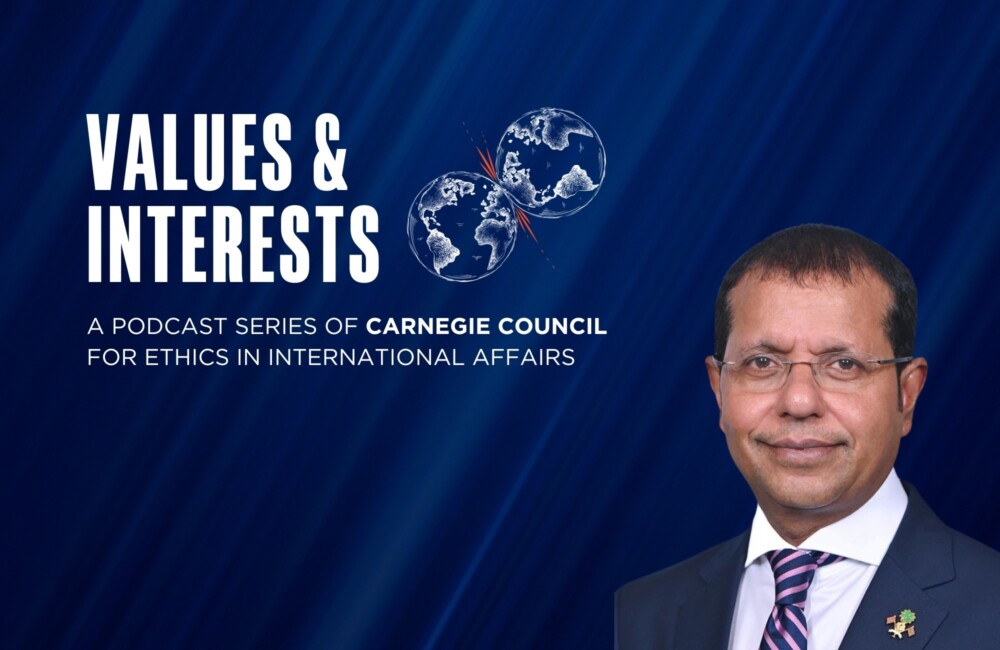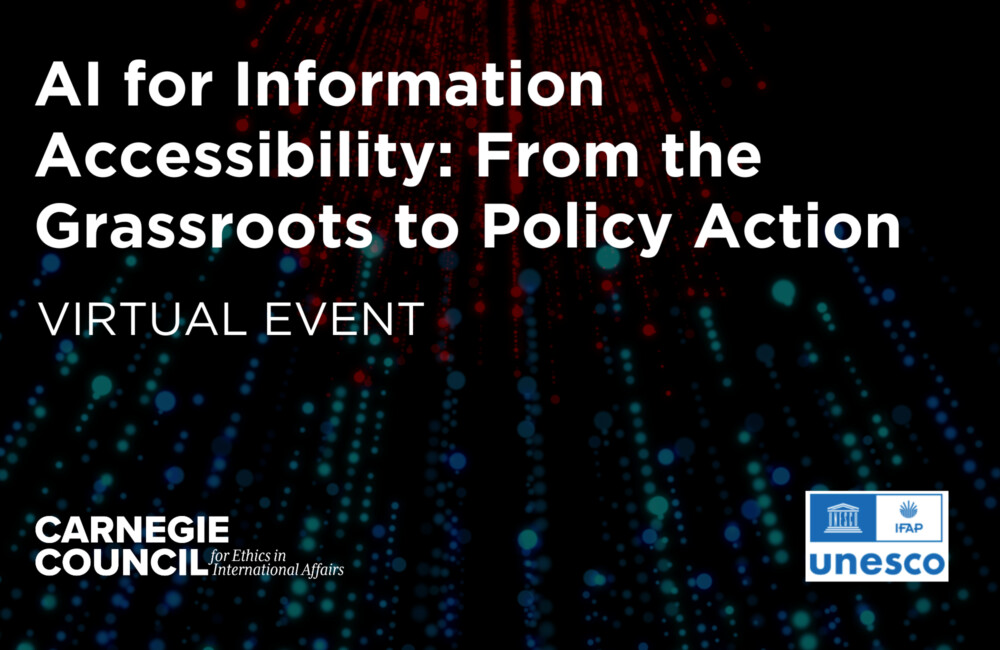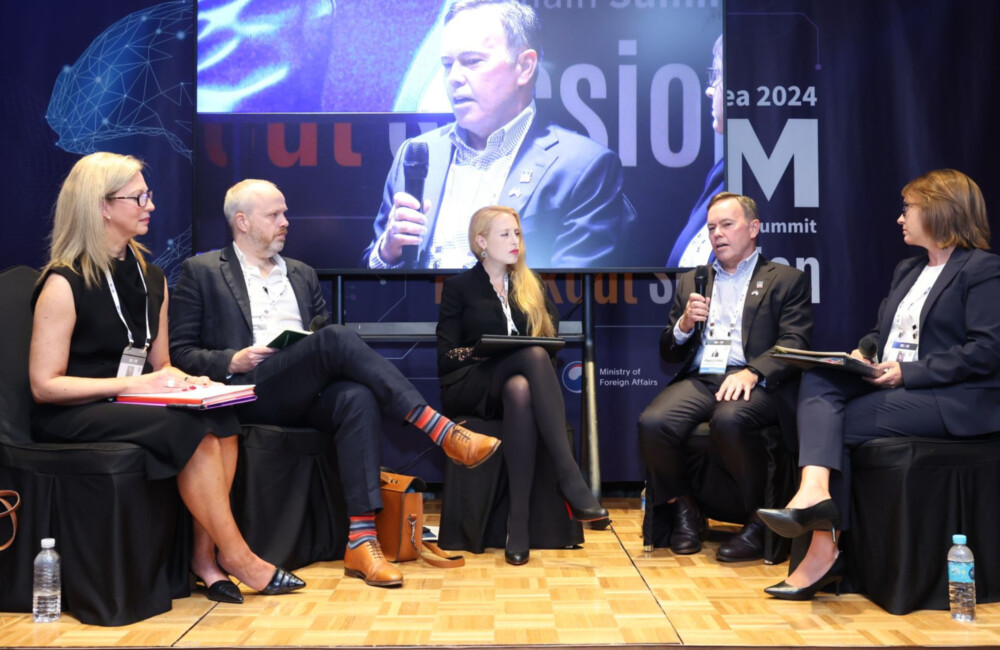Framing ethical perspectives
Multilateralism refers to a group of nations working together for a common goal. It is at the heart of international relations as nation-states form alliances with like-minded countries to take on global issues, such as climate, emerging technology, inequality, and collective security. Carnegie Council sees multilateralism as essential to generating solutions to global problems and a critical component of an ethical present and future.
Featured Multilateralism Resources
Inclusivity, AI & climate governance, and more
FEB 27, 2024 • Video
A Carnegie Council Conversation with the UK Home Secretary
MAR 28, 2024 • Video
Unlocking Cooperation: The Global South and Global North
In the inaugural panel of the "Unlocking Cooperation" series, Ramu Damodaran leads a discussion on forging a path forward for Global South/North collaboration.
OCT 18, 2023 • Video
Unlocking Cooperation: A Global Ethics Day Special Event
In this keynote event for Global Ethics Day 2023, Carnegie Council President Joel Rosenthal led a conversation on the psychology behind cooperation; ways that states, institutions, ...
Subscribe to the Carnegie Ethics Newsletter for more on ethics and international affairs
Related Initiatives
Model International Mobility Convention
The primary goal of the Model International Mobility Convention (MIMC) is to formulate new rules for migration and asylum that can benefit both migrants and refugees as well as their states of origin, transit, and destination.
Carnegie Ethics Accelerator
The Carnegie Ethics Accelerator is a new kind of incubator designed to empower ethics in the face of swiftly evolving challenges in technology and public policies.
Explore Our Multilateralism Resources

APR 4, 2025 • Video
Unlocking Cooperation: Space Diplomacy
In this event, Northeastern University’s Ethics Institute partnered with Carnegie Council to host a convening on the future of international space governance, security, & sustainability.

MAR 18, 2025 • Podcast
Small States, Mutual Respect, and the Future of the International System, with Ambassador Ali Naseer Mohamed
Ambassador Ali Naseer Mohamed, permanent representative of the Maldives to the UN, discusses the vital role of small states at this critical global moment.

NOV 13, 2024 • Article
An Ethical Grey Zone: AI Agents in Political Deliberations
As adoption of agentic AI increases, it is critical for researchers and policymakers to agree on ethical principles to inform governance of this emerging technology.

SEP 25, 2024 • Article
Politico Op-Ed: Walking a Fraying Nuclear Tightrope
In a new op-ed, Carnegie Council President Joel Rosenthal argues that a recommitment to nuclear arms control is nothing short of a moral imperative.

SEP 19, 2024 • Video
Unlocking Cooperation: AI for All
On the eve of the Summit of the Future, Carnegie Council and UNU-CPR hosted a special event exploring the implications of AI for the multilateral ...

SEP 16, 2024 • Video
AI for Information Accessibility: From the Grassroots to Policy Action
How can citizens, civic institutions, and industry professionals work together to make sure that emerging technologies are accessible for everyone?

SEP 9, 2024 • Video
Responsible Military Use of AI: Bridging the Gap between Principles and Practice
This panel at the REAIM Summit in Seoul focused on the need to develop international governance for the use of military AI.

JUL 23, 2024 • Video
Global Leadership in a Turbulent Time: A Conversation with Professor Abiodun Williams
In this roundtable discussion, Tufts University's Professor Abiodun Williams speaks about the essential leadership traits needed to drive institutional change.

JUN 25, 2024 • Video
Unlocking Cooperation: Climate Change and Human Mobility
On World Refugee Day, Carnegie Council hosted a discussion on enhancing multilateral cooperation at the intersection of climate change and human mobility.

JUN 4, 2024 • Article
Space-Based Data Risks to Refugee Populations
Space-based data is quite useful for observing environmental conditions, but Zhanna Malekos Smith writes that it also raises privacy concerns for vulnerable populations.




